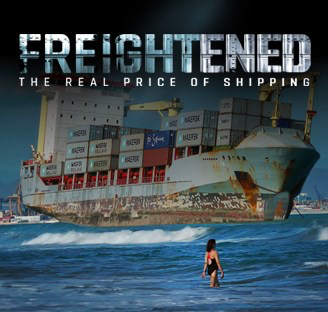
Photo courtesy futurelearn.com
You say the Paradise Papers disclosures have got you thirsting for more on how and why companies with stacks of money protect that money from being taxed?
We’ve got just the thing for you: a short primer on how and why shipowners choose, finance and register the ships the way they do — and why they register them under flags of convenience.
Anyone seeking to represent maritime workers — or support their struggles — is well served by an understanding of how shipping works. It gives us the ability to leverage workers’ interests and the health and safety of the communities they work in. To that end, we’re passing along a link to a short, no-cost course offered through the open university site called FutureLearn.
The course is called Maritime Law: An Introduction to Shipping Transactions. It caught our eye because it’s a simple, straightforward presentation on how shipowners choose ships, how they find the money to buy them and how they pick a flag to register them with.
Here’s their pitch, in their own words:
“This free online course will look below the water line at the unseen legal and transactional structures behind the shipping industry.
“We will examine the process of acquiring and financing of new vessels and secondary market tonnage: from the various perspectives of a buyer, a seller, a ship-builder and a bank. We will explore the concept of flags of convenience and modern practice of ship registration.
“You will develop an understanding of how the merchant fleets of the world are bought, sold and securitized – and how international conventions regulate ships wherever they are registered.”
The course has been put together by the UK Chamber of Shipping, the Law Society of Scotland, and the shipping wing of the UK law firm Addleshaw Goddard — in other words, the kingpins of the British shipping industry — and so it’s also an interesting look at how they explain themselves to people entering the maritime field. It won’t surprise you that we might offer a considerably different viewpoint on maritime labour, on the motives behind the use of foreign registries and on flags of convenience, but we’ll let it go at that.
Mostly, we think it’s a simple way to get a basic, plain-English understanding of how ships are bought and sold and registered, some basics of ship financing (worth knowing, given the massive oversupply of tonnage and its effect on labour), and how the industry justifies its reliance on foreign registries and regulatory regimes. The articles are short, the videos highly watchable.
The course is easy to access. Click here; all you need to register is your name and an email address. It’s free if you just want to study the materials. There’s a small fee if you want to get a credit for your resume. Access is open now and continues until Dec. 10. It’s laid out over four weeks for convenience, but you can get through the videos and short articles in a few hours total, depending on what interests you. Or you can skip around to the bits that interest you.
* FutureLearn is one a large number of university networks that offer mass open, online courses. The ITFCanada blog is in no way connected with it.


